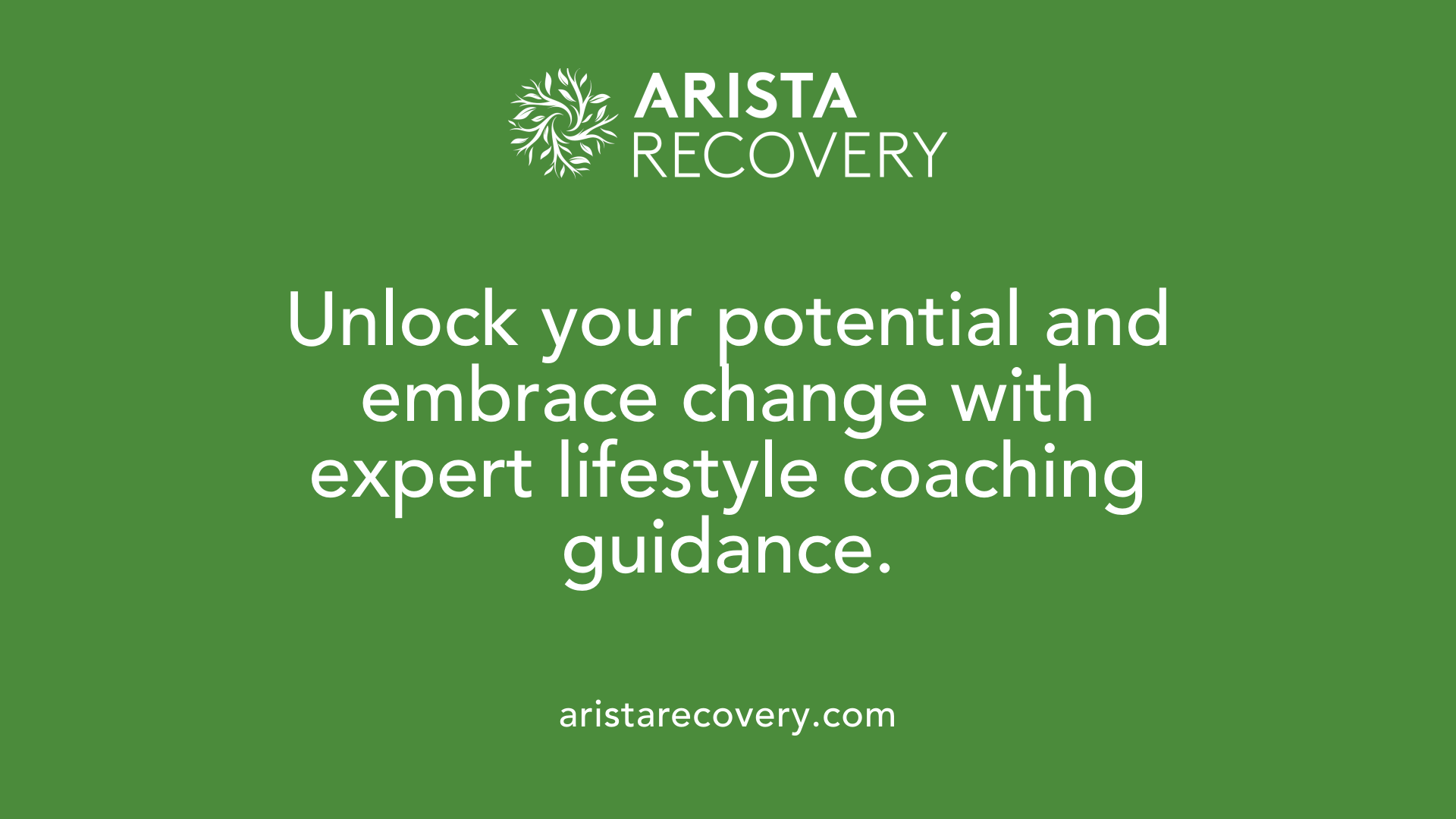
How Lifestyle Coaching Helps Individuals Transition After Treatment
Navigating Life's Turning Points with Lifestyle Coaching
Major life changes such as recovery from illness, career shifts, or personal milestones can be challenging and overwhelming. Lifestyle coaching offers a strategic, supportive approach to help individuals steer through these transitional phases with confidence, resilience, and clarity. This article delves into how lifestyle coaching facilitates smooth and empowering transitions, fostering personal development and mental well-being after treatment.
Understanding the Core Role of Lifestyle Coaching in Transitions

What is lifestyle coaching?
Lifestyle coaching is a personalized approach designed to help individuals assess their current habits, identify areas for improvement, and create a clear vision for their future. Unlike therapy, which often delves into healing past traumas, coaching centers on setting and achieving goals, fostering personal growth, and making sustainable changes.
Coaches work collaboratively with clients to explore various aspects of life such as health, relationships, career, and emotional well-being. They use motivational interviewing, structured goal-setting frameworks like SMART goals, and personalized action plans to guide clients towards desired outcomes. The process involves open dialogue, supportive accountability, and practical strategies, empowering clients to take control of their lives.
How does lifestyle coaching differ from therapy or counseling?
While therapy and counseling primarily focus on healing psychological wounds and addressing mental health issues, lifestyle coaching emphasizes future-oriented growth and goal achievement. Therapy often involves exploring past experiences, traumas, and emotional challenges, whereas coaching concentrates on building skills, confidence, and resilience for upcoming challenges.
Coaches do not diagnose or treat mental health conditions but instead facilitate a proactive process that promotes self-awareness, motivation, and accountability. This distinction makes coaching suitable for individuals seeking direction, personal development, or support during significant life transitions.
Focus on goal setting and personal growth
A central element of lifestyle coaching is guiding clients through effective goal setting, often using the SMART criteria—Specific, Measurable, Achievable, Relevant, and Time-bound. Coaches help clients break down large, overwhelming changes, such as career shifts or health improvements, into manageable steps.
By developing actionable plans and regular check-ins, coaches foster progress and help clients observe their own growth. Building resilience, enhancing self-confidence, and nurturing a positive mindset are integral to this process, enabling individuals to adapt better and thrive during periods of change.
Benefits of lifestyle coaching in post-treatment recovery and adapting to new life circumstances
Lifestyle coaching offers numerous advantages for those recovering from health treatments or enduring life changes. It promotes healthier habits, like nutrition, sleep, and exercise routines that support overall wellness.
Emotional resilience is bolstered through techniques that increase self-awareness, confidence, and empowerment, helping individuals recognize strengths and values. Regular support and accountability contribute to sustained motivation, helping prevent setbacks.
Clients often report reduced stress, improved quality of life, and better medication adherence. Coaching especially benefits those with lower self-efficacy by providing a secure environment to work through fears and uncertainties, making transitions into new life stages smoother.
How does lifestyle coaching support individuals during major life changes and transitions?
During significant life shifts such as divorce, job loss, or caring for a loved one, lifestyle coaching offers structured guidance that enhances clarity and confidence. Coaches help clients analyze their past experiences and present feelings to define meaningful goals.
Through personalized strategies such as visualization, routine planning, and action steps, clients can navigate uncertainty more effectively. Supportive coaching encourages resilience by turning challenges into growth opportunities, helping individuals build self-esteem and embrace change.
What processes and methods are used in lifestyle coaching to facilitate transitions after treatment?
Several evidence-based techniques underpin successful transition coaching. Motivational interviewing, involving open-ended questions and affirmations, boosts motivation and resolves ambivalence.
Structured models like the GROW framework (Goal, Reality, Options, Will) assist clients in setting and pursuing clear objectives. Mindfulness, relaxation exercises, and somatic therapies are integrated to enhance emotional regulation.
Personalized action plans and ongoing support, often involving multidisciplinary teams and digital tools, ensure sustainable progress. This collaborative approach ensures that clients develop healthy routines in diet, exercise, stress management, and sleep that last well beyond initial coaching sessions.
What support mechanisms does lifestyle coaching offer during recovery and major life events?
Lifestyle coaches provide continuous support through feedback, progress tracking, and motivational techniques. They help clients identify their core values, refine goals, and maintain focus.
Building confidence and emotional strength is achieved by recognizing successes and reinforcing personal strengths. Coaches also facilitate building social support networks and engaging community resources, which are crucial during difficult times.
Positive psychology and resilience-building strategies increase motivation, helping clients stay committed and adaptable even amidst setbacks.
How does lifestyle coaching contribute to personal development and mental well-being after treatment?
Post-treatment, coaching emphasizes self-awareness, goal clarity, and the development of sustainable habits that bolster mental health. Techniques rooted in neuroscience and positive psychology address emotional challenges such as anxiety and stress.
Personal growth is augmented through improving relationships, building self-confidence, and fostering a sense of purpose. By focusing on future achievements, coaching empowers individuals to maintain mental wellness over the long term.
How does coaching facilitate emotional and nervous system healing after treatment?
Emotional healing is supported through trauma processing techniques, including methods like Internal Family Systems (IFS), which help clients understand and manage inner parts preventing well-being. Coaches guide clients in releasing emotional burdens, restoring inner calm, and cultivating self-compassion.
Energy healing modalities, mindfulness, and somatic therapies assist in nervous system regulation, reducing stress and promoting stability. These approaches help clients reconnect with their inner selves, fostering resilience, emotional balance, and inner safety.
In what ways can lifestyle coaching assist individuals during major life changes?
Coaching provides structured support during major changes by helping clients explore new possibilities, set realistic goals, and develop skills necessary for adaptation. Coaches employ visualizations, routines, and stress-management techniques to facilitate smooth transitions.
The focus on building resilience and viewing change as an opportunity for growth encourages positive perceptions and confidence. As a result, clients can embrace new roles, responsibilities, and environments more effectively.
Educational insights on the role of lifestyle coaching in navigating life transformations
Understanding that coaching is a holistic, empowering process helps clients appreciate its effectiveness. It combines goal-oriented strategies with emotional support, rooted in scientific principles like neuroplasticity and positive psychology.
Education about certifications and ethical standards assures clients of professional quality. Recognizing coaching as a tool for transforming challenges into opportunities fosters informed engagement in personal development.
When is an individual ready for lifestyle coaching, and how can they transition from therapy to coaching?
Individuals ready for coaching typically have clear goals, a growth mindset, and a desire for proactive change. Transitioning from therapy to coaching is suitable once psychological healing is sufficiently established, and clients seek future success rather than past trauma work.
It involves understanding distinctions between mental health therapy and coaching, obtaining proper training, and maintaining ethical boundaries. Clients can transition gradually, ensuring they are prepared to focus on growth and goal achievement while leveraging insights gained in therapy.
Strategies employed in lifestyle coaching for adapting to new life stages
Coaches tailor strategies to individual needs, such as setting specific routines, practicing mindfulness, and reinforcing strengths. Components include lifestyle management, resilience building, social engagement, and ongoing personal development.
These practices help clients develop adaptability, stability, and fulfillment as they navigate new chapters like retirement, aging, or career reinvention. The goal is sustainable change that aligns with personal values and aspirations.
Embracing Growth and New Horizons
In summary, lifestyle coaching is a powerful and versatile tool that supports individuals through the complex and often emotional process of life transitions after treatment. By focusing on goal setting, fostering resilience, facilitating emotional healing, and encouraging sustainable habits, coaching helps clients regain confidence, achieve personal and professional goals, and embrace their new life chapters. Its future-oriented, personalized approach ensures that every individual can unlock their inner potential and move forward with clarity and purpose, turning challenges into opportunities for growth and renewal.
References
When mental health challenges and addiction intersect, it can feel isolating. At Arista, we offer compassionate, evidence-based, and trauma-informed care to help you heal, grow, and move forward.
You’re not alone in this.
When mental health challenges and addiction intersect, it can feel isolating. At Arista, we offer compassionate, evidence-based, and trauma-informed care to help you heal, grow, and move forward.
Support that moves with you.
You’ve taken a brave first step. At Arista Recovery, we’re here to help you continue with best-in-class care designed for long-term healing and support.
.webp)






